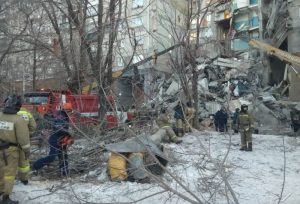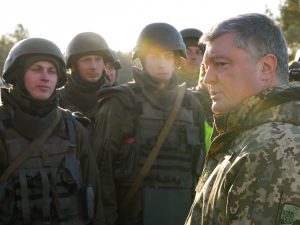
By Vivian Sequera and Andrew Osborn
CARACAS/MOSCOW (Reuters) – U.S. President Donald Trump spoke to Venezuela’s self-proclaimed interim president by phone on Wednesday, reiterating support for his “fight to regain democracy,” as Washington’s push to force socialist President Nicolas Maduro from power picked up steam.
The White House said Trump and Juan Guaido, the opposition leader trying to replace Maduro, agreed to maintain regular communication after Venezuelan authorities opened an investigation that could lead to Guaido’s arrest.
The moves against Guaido, 35, including a travel ban and assets freeze, were in retaliation for oil sanctions imposed by the United States this week. They intensified the fight to control Venezuela, an OPEC nation that has the world’s largest oil reserves.
The U.S. president spoke to Guaido to “congratulate him on his historic assumption of the presidency and to reinforce President Trump’s strong support for Venezuela’s fight to regain its democracy,” White House spokeswoman Sarah Sanders said.
Guaido thanked Trump for the U.S. commitment to freedom and prosperity in Venezuela and the region and noted the importance of planned protests across the country against Maduro on Wednesday and Saturday, she said in a statement.
“They agreed to maintain regular communication to support Venezuela’s path back to stability, and to rebuild the bilateral relationship between the United States and Venezuela,” Sanders said.
Maduro, 56, accused Trump of ordering his assassination, while his main global backer Russia called on Wednesday for mediation in a standoff that is splitting foreign powers.
Maduro, facing the biggest challenge to his rule since replacing Hugo Chavez six years ago, said Trump had ordered neighboring Colombia to murder him.
“Donald Trump has without doubt given an order to kill me and has told the government of Colombia and the Colombian mafia to kill me,” Maduro said in an interview with Moscow’s RIA news agency, reprising an accusation that he and Chavez have often made over the years.
Bogota and Washington have routinely denied that, while foes say Maduro uses such accusations as a smokescreen when in trouble.
However, speculation about military action against him was fueled this week when Trump national security adviser John Bolton carried a notepad with the words “5,000 troops to Colombia”. U.S. Major General Mark Stammer, the commander of U.S. Army South, was in Colombia on Wednesday, U.S. embassy officials said.
Russia, which like China has loaned and invested billions of dollars in OPEC member Venezuela, called on Guaido to drop his demand for a snap election and instead accept mediation.
However, given the failure of previous rounds of dialogue between the government and opposition, including one led by the Vatican, opponents are suspicious, believing Maduro uses them to quell protests and buy time.
Venezuela’s Supreme Court imposed the travel ban on Guaido and froze his bank accounts in apparent retaliation for the U.S. oil sanctions, which are expected to deliver another blow to an already collapsing economy. Some 3 million Venezuelans have left the country amid food shortages and hyperinflation.
In a tweet on Wednesday, Trump warned U.S. citizens against traveling to Venezuela, given the unrest.
GLOBAL STANDOFF
The United States is Venezuela’s largest crude importer, ahead of India and China, but the new measures limit transactions between U.S. companies and state oil company PDVSA.
Oil prices rose nearly 3 percent on Wednesday, boosted by U.S. government data that showed signs of tightening supply, as investors remained concerned about supply disruptions because of Venezuela
Guaido, an opposition lawmaker who is president of the National Assembly, has been recognized as president by the United States and most Western Hemisphere nations. He says Maduro fraudulently won elections last year and is offering an amnesty to military officials.
Maduro, who took office for his second term this month and who accuses Guaido of staging a U.S.-directed coup against him, still has the support of senior military officers. He is unlikely to back down unless that changes.
In the RIA interview, Maduro reiterated he was ready for talks with the opposition, but rejected as blackmail calls for a snap election.
“I won legitimately,” he said of last year’s election. “If the imperialists want a new election, let them wait until 2025.”
Maduro also expressed “pleasure and gratitude” for Russian President Vladimir Putin’s help.
Sources have told Reuters private military contractors who do secret missions for Moscow were in Venezuela.
Guaido called for protests on Wednesday and a mass march at the weekend. More than 40 people have died so far in and around the protests that began a week ago, the U.N. human rights office said. Hundreds have also been arrested, including children.
Government supporters have also attended large rallies led by Maduro allies, while the president visited military bases in recent days. He ordered the creation of 50,000 popular defense units, community groups charged with the “integral defense of the fatherland.”
Venezuelan Attorney General Tarek Saab sought a preliminary investigation of Guaido on the basis that he helped foreign interference in Venezuela. Announcing the moves against Guaido, Supreme Court President Maikel Moreno, a major Maduro ally, said the measures were to “protect the integrity of the country.”
(Reporting by Vivian Sequera; Additional reporting by Gabrielle Tétrault-Farber and Maria Kiselyova in Moscow; Susan Heavey, Jeff Mason and Roberta Rampton in Washington; Karin Strohecker and Noah Browning in London; Writing by Andrew Cawthorne and Frank Jack Daniel; Editing by Alison Williams, Andrew Heavens and Frances Kerry)










